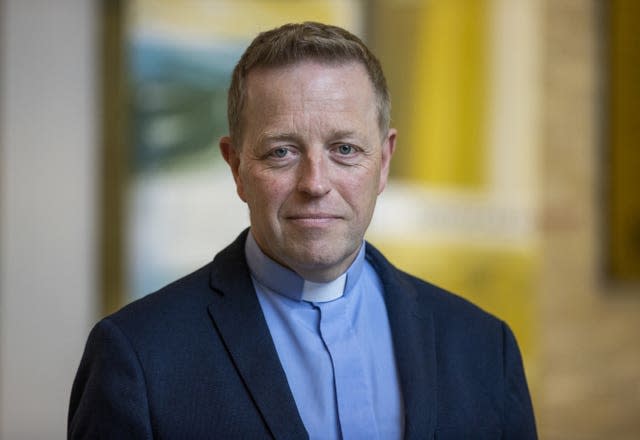Around 100 Northern Ireland groups to benefit from UK fund to replace EU support
A £57 million funding package has been allocated to charities and community groups in Northern Ireland facing a financial crisis due to a loss of European money.
Eighteen projects covering around 100 organisations across the region will receive backing through the UK Shared Prosperity Fund (UKSPF) with a focus on helping support people into work.
However, an umbrella group representing community organisations in Northern Ireland said the funding announced amounted to only half of what was previously available.
The Government announcement came on the day financial support provided by the European Social Fund (ESF) comes to an end as a consequence of Brexit.
Some charities in Northern Ireland had warned they would have to cut staff numbers and support programmes if funding was not replaced.
The successful projects were selected after an open competition among organisations in Northern Ireland, while other groups will have been left disappointed.
There has been criticism from the community sector that the announcement was not made earlier.
Representatives of 1,000 community groups staged a demonstration in Belfast earlier this month to highlight the cash crisis.
Making the announcement, Levelling Up Minister Dehenna Davison said the Government was increasing the pot originally earmarked for economic inactivity support in Northern Ireland by £15 million.
“We are making the most of opportunities outside the European Union to deliver for people in Northern Ireland,” she said.

“It is fantastic that organisations have come together in new partnerships to deliver creative solutions to economic inactivity through the UK Shared Prosperity Fund.
“In recognition of the huge impact charities, businesses and colleges are having on the ground, I’m delighted to announce that we are boosting the original funding pot for this competition by an additional £15 million to help them support even more people into fulfilling jobs.
“This is an important milestone in the investment we are making to level up Northern Ireland and the whole of the UK.”
The ESF funding had been worth around £40 million. This money was 35% match-funded from Stormont, raising the sum to £54 million.
However, the Stormont executive is not operating and civil servants are limited in the spending decisions they can take.
The UK Government announced plans for a £42 million replacement funding package in December – a sum that has now risen to £57 million.
The Government said the funding would benefit around 100 organisations and support more than 25,000 economically inactive people in Northern Ireland.
The grants allocated on Friday focusing on economic inactivity represent 45% of a total of £127 million the Government has committed to spend in Northern Ireland through the Shared Prosperity Fund.
Northern Ireland Secretary Chris Heaton-Harris welcomed the announcement, saying: “The £57 million funding will support the vital work of community and voluntary organisations, enabling them to support people in Northern Ireland into secure and sustainable employment.
“Through its People and Skills strand, the UK Shared Prosperity Fund will invest in skills training and interventions to support economically inactive people in Northern Ireland.
“This is key to boosting productivity and harnessing Northern Ireland’s growth potential.”

But Rev Andrew Irvine, chair of the Community Sector Peer Group, said: “The stark reality is that today’s funding is half of that previously available.
“Today’s last-minute intervention will only provide a lifeline for some services.
“This will have a devastating impact on those groups who have not received funding, their staff and those who rely upon them.
“It will take time to assess the impact of this debacle.”
He added: “The indecision of the past four years has shown that there is no strategic, long-term, joined-up thinking by Government in London or Belfast towards employability services or the wider contribution of Northern Ireland’s community sector.”

 Yahoo News
Yahoo News 
